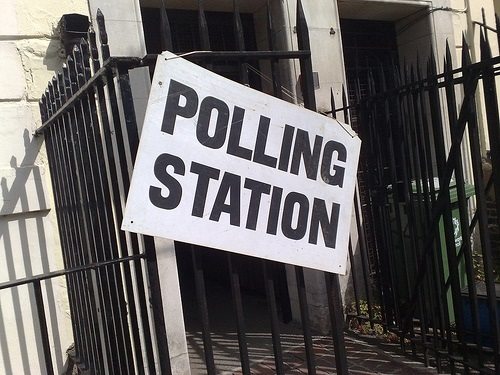
October 6, 2014; Daily Beast
Jack Holmes has a fabulous article in the Daily Beast suggesting that we all might want to be cautious about relying too much on polling data for crafting public policy. Not only does he repeat the story of the opinion polls that led to the “Dewey Beats Truman” headline, but he recounts the fabulous George Bishop poll from 1986 asking Cincinnatians if they thought the 1975 Public Affairs Act should be repealed. One-third offered opinions pro and con on the act, even though the act didn’t actually exist.
Sign up for our free newsletters
Subscribe to NPQ's newsletters to have our top stories delivered directly to your inbox.
By signing up, you agree to our privacy policy and terms of use, and to receive messages from NPQ and our partners.
Now we have polls that raise similar dubious interpretations, such as the 2012 Reuters poll in which a majority of Americans opposed the Affordable Care Act even though large pluralities in the same poll supported key provisions of the ACA like the prohibition on denials of insurance due to preexisting conditions and the mandate that large employers provide insurance to their employees. More recently, we have a significant majority of Americans approving bombing of ISIL (and presumably Al-Qaeda affiliates) in Syria and Iraq without much knowledge of what’s actually going on there and what the bombing would accomplish without “troops on the ground.”
How about poll results concerning nonprofit issues? Are they reliable? Believable? Some recent nonprofit-related polling might warrant debate:
- Public Citizen and the Hudson Institute found recently that 86 percent of voters believe in strong, clear rules for how much political activity nonprofits should be allowed to pursue, with no significant difference between Republicans and Democrats on the issue, and two-thirds favored including disclosure and transparency in the rules. NPQ has often written in agreement with this position, but do the polled voters believe, as the first IRS draft of new rules suggested, that voter registration and get-out-the-vote activities should be counted as political? That, NPQ has written against. Would nonprofits of all stripes, public charities included, be open to new requirements of disclosure? Many nonprofits have been edgy about anything that goes too far on disclosure that might lead to new disclosure requirements not just on 501(c)(4) social welfare organizations, but 501(c)(3) public charities. The majority of respondents overall called for “clear rules and standards,” but that statement might not necessarily lead to nonprofit sector agreement as to what those rules might be and how much disclosure should be mandated.
- In 2011, a Gallup poll found that almost three-fourths of Americans opposed the elimination of tax deductions for charitable giving. However, the elimination of the charitable deduction hasn’t been proposed by either Republicans or Democrats and even gets retained in versions of flat tax legislation. The proposal on the books in 2011 and before was President Obama’s proposal to cap the deduction for high-income taxpayers. Might this poll lead people to think that a proposal to modify and cap the deduction was really a stalking horse for the elimination of the charitable deduction, something that Obama has never supported, much less proposed?
- In 2012, the United Way Worldwide released poll results concluding that “reducing or eliminating” the charitable deduction would have a negative impact on charities and the people they serve. Two-thirds of poll respondents were opposed to making either of those changes. Would the results have been different had the president’s proposed use of the funds—for healthcare, for jobs, etc.—been explained in contrast to simply addressing a loss of charitable income? The poll reported, “Of those who would reduce their giving, a majority (62%) indicate they would have to reduce their contributions by a significant amount.” (Emphasis added.) The poll was subsequently reported as concluding that 62 percent of Americans would cut their giving—even though, again, the president’s proposal only capped giving for the very rich. Whether one agrees or disagrees with the proposal that would have capped the deduction, it is impossible to imagine a scenario where that would have led three out of five Americans to cut their charitable giving by 25 percent or more.
- Poll results suggest that a large majority of Americans, almost three-fourths, think that Washington, D.C.’s NFL franchise should keep the name that many Native Americans consider derogatory and about two-thirds believe that it isn’t a disparaging epithet. The cultural credentials of the respondents weighing in on the team’s name might be suspect, but that’s the kind of poll that is used by the 501(c)(6) National Football League and the owner of the Washington franchise to justify the team’s name and mascot. A poll conducted by the Cleveland Indians showed a huge proportion of the team’s fans in favor of keeping “Chief Wahoo,” the grinning cartoon image used by the team as its logo. It’s comparable to asking Americans, perhaps some decades back, about their kindly feelings toward caricatures such as Sambo and Stepin Fetchit. Poll results might be in favor of the Washington football and Cleveland baseball teams’ racially disparaging mascots, but that doesn’t make them reliable bases for public policy or nonprofit decisions.
At some point, our nation has to move beyond policy-making based on poll results and look for thinking, analysis, and leadership. The same goes for the nonprofit sector: Sometimes boiling important but complex issues down to simple poll questions fails to advance and may substantially harm public debate.—Rick Cohen













